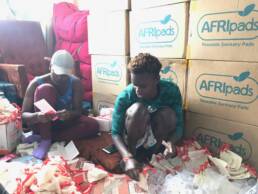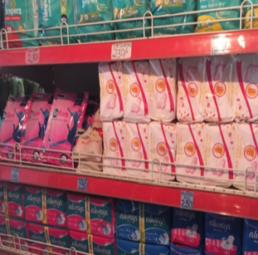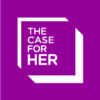Until recently, the leading solution to the problems of the menstrual health sector has been to provide women and girls with menstrual hygiene products. While these products are not a silver bullet solution, they are a much-needed intervention. However, too often, the decision-making around which products are available to consumers lies with the producers and distributors rather than the women themselves.

There is an urgent need in the menstrual health sector for research to understand which products women want from providers. In 2018, The Case for Her ran the Sheosk study, a small-scale pilot with 443 young female students in the Mathare area of Nairobi to understand their menstrual product preferences — and how choice could play a larger role in product-based menstrual health interventions. We partnered with Femme International, a local menstrual health educator, Echo Mobile, a survey deployment company, and three menstrual product companies to offer the girls a choice between a free reusable pad, disposable pad, or menstrual cup.
While the Sheosk study was small, the results were clear: girls’ preferences vary and they want to choose among multiple menstrual health products — or even to combine multiple products. These choices are influenced by a variety of factors including age, familiarity and habit, peers and, most importantly, cost.

With these and the Sheosk project’s other key findings, we aim to highlight the importance of choice, and encourage fellow menstrual health catalysts and providers to undertake similar and larger-scale consumer studies. In this regard, we also hope that the lessons we learned in the process of running the project will serve useful in informing others’ future work to better understand women’s needs.
Special thanks to our partners in this project: menstrual health educator Femme International, survey team Echo Mobile, our three product providers Ruby Cup, AFRIpads and ZanaAfrica, and project coordinator Sarah Anwar.
- The Case for Her Teamhttps://thecaseforher.com/blog/author/tcfh-team/
- The Case for Her Teamhttps://thecaseforher.com/blog/author/tcfh-team/
- The Case for Her Teamhttps://thecaseforher.com/blog/author/tcfh-team/
- The Case for Her Teamhttps://thecaseforher.com/blog/author/tcfh-team/


